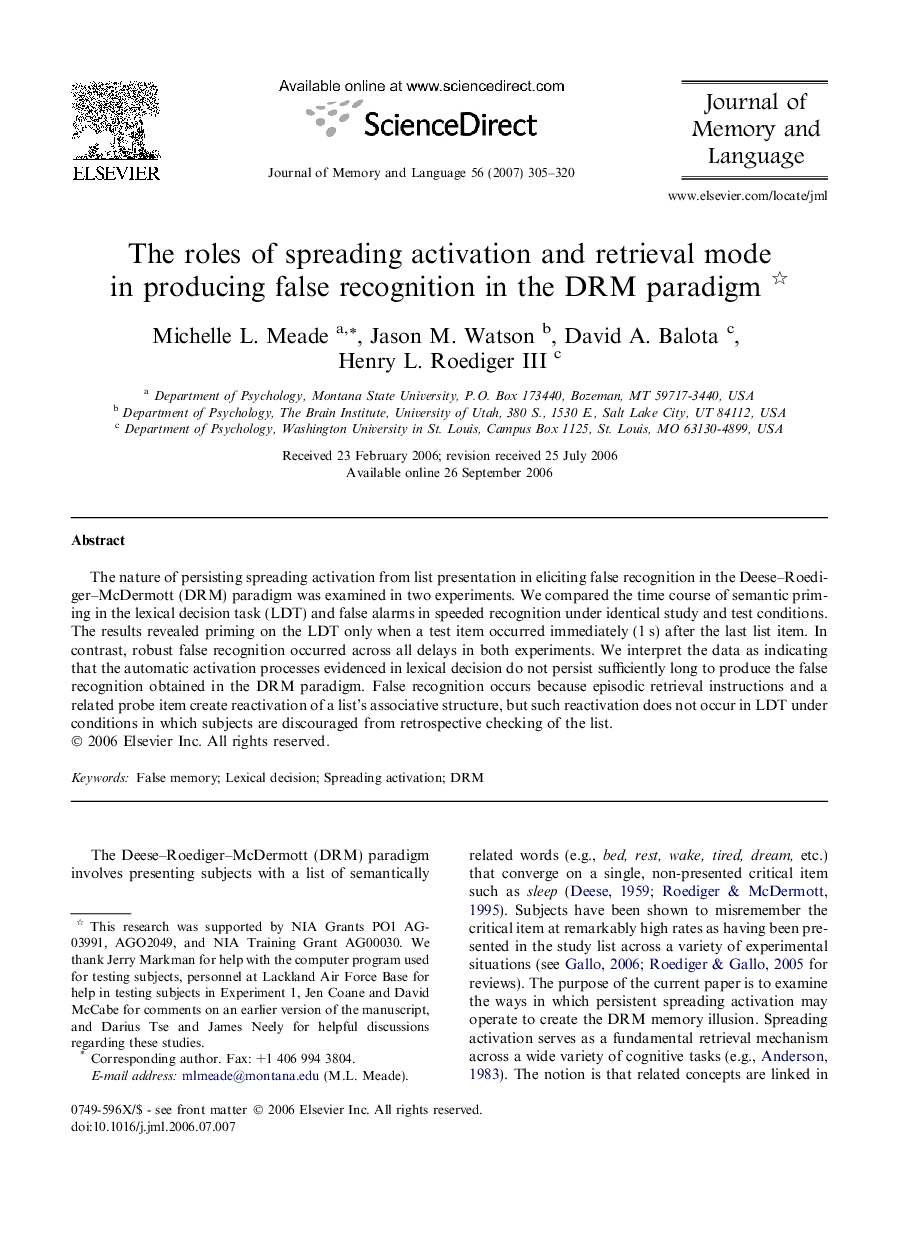| Article ID | Journal | Published Year | Pages | File Type |
|---|---|---|---|---|
| 932249 | Journal of Memory and Language | 2007 | 16 Pages |
The nature of persisting spreading activation from list presentation in eliciting false recognition in the Deese–Roediger–McDermott (DRM) paradigm was examined in two experiments. We compared the time course of semantic priming in the lexical decision task (LDT) and false alarms in speeded recognition under identical study and test conditions. The results revealed priming on the LDT only when a test item occurred immediately (1 s) after the last list item. In contrast, robust false recognition occurred across all delays in both experiments. We interpret the data as indicating that the automatic activation processes evidenced in lexical decision do not persist sufficiently long to produce the false recognition obtained in the DRM paradigm. False recognition occurs because episodic retrieval instructions and a related probe item create reactivation of a list’s associative structure, but such reactivation does not occur in LDT under conditions in which subjects are discouraged from retrospective checking of the list.
